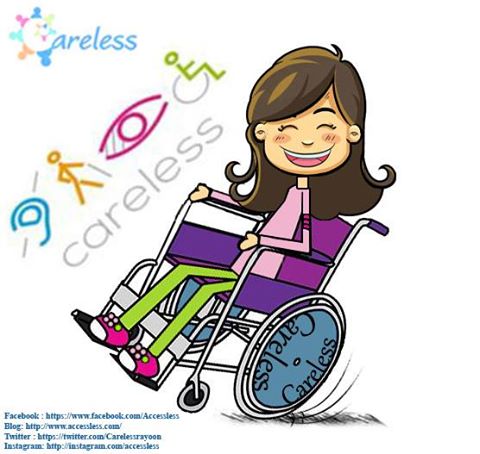Putting Palestine on the culinary map
The most delicious way to a society's soul is through its stomach, believes the creator of Palestine on a Plate.
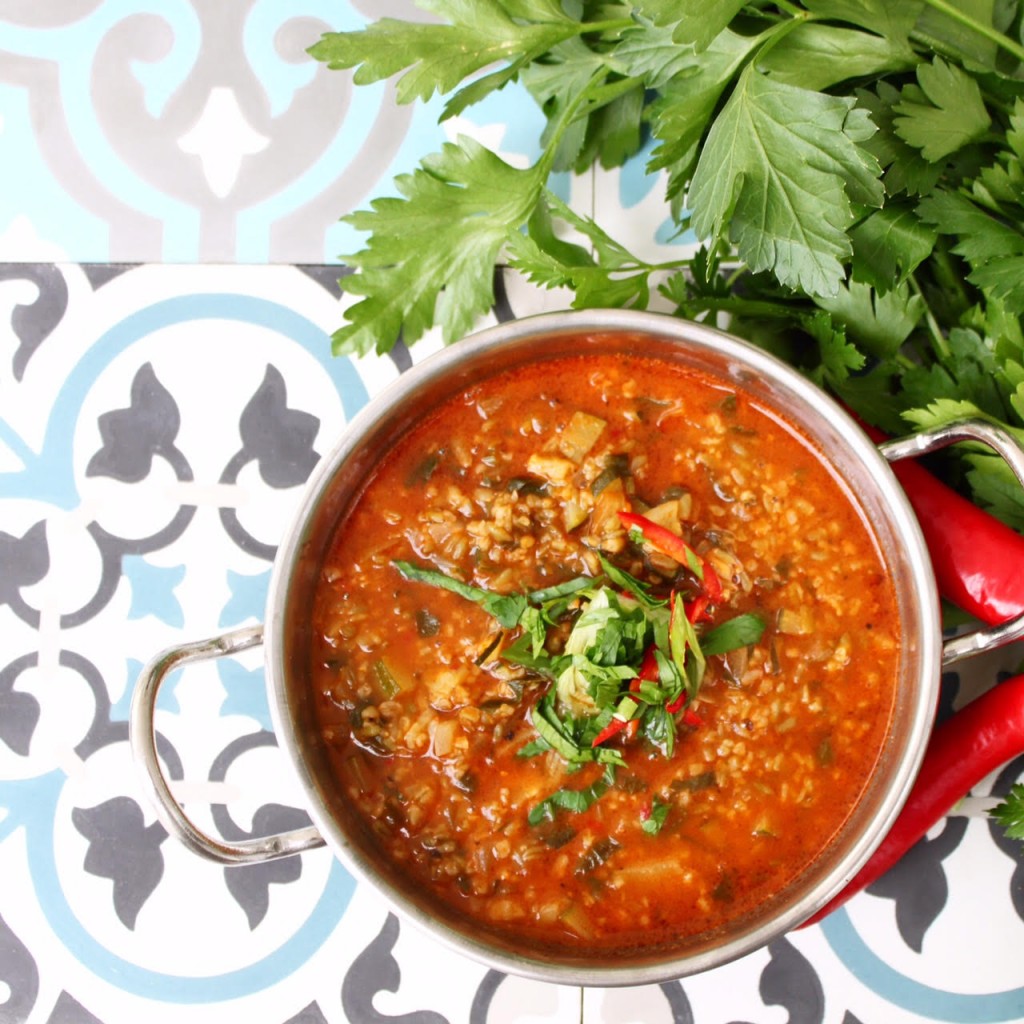
Monday 29 June 2015
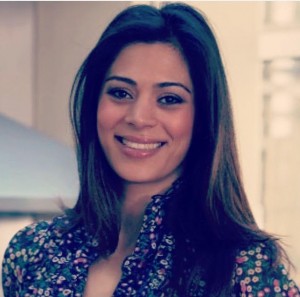
Conflict Kitchen is an eatery in Pittsburgh with a political message: uniting people through food. It serves food primarily from countries which are in conflict with the United States, hence its name.
One recent guest chef at Conflict Kitchen was Joudie Kalla, who was born to Palestinian parents but has spent most of her life in London.
The acclaimed Palestinian chef also has her own personal project which aims to reclaim Palestinian identity by spreading its cuisine. Palestine on a Plate is a cookery application that has been making gradual but noticeable progress over the past few months, already clocking up 12,000 likes on Facebook. The app offers food lovers the chance to taste the beauty of Palestine through its best-known dishes.
Kalla says her love for food was ignited when, at the tender age of four, she would sit in the kitchen with her three sisters and watch her mother cook several dishes at a time. “I loved baking cakes with her and bread stuffed with different fillings. I knew then that I wanted to be a chef,” she says.
Like many little girls, Kalla's obsession was with Barbie dolls but food came a close second. When she started school, she chose to study home economics which is “sadly not offered to children these days,” she says. She used to rush home from class to see what was for dinner and to see if she could help in any way to prepare the food. Kalla admits it made her a little anti-social, as she loved to be behind the stove more than with other people. “All I wanted to know is if someone liked my food. I felt comfortable in the kitchen and really blossomed there,” she confesses.
Although Kalla has a degree in art, architecture and design and holds a master's degree in French culture and civilisation, she changed her direction at the age of 21. Her father did not fully approve of her decision to become a professional chef because he was “exceptionally difficult to please… but he was tough on me for a reason. He wanted me to be the best I could be and true to myself.”
In contrast, her mother was very supportive and encouraged her. “She really felt and feels that I am living on through her with my food, which is actually true,” explains Kalla. Cooking for Kalla is a combination of a hobby, a profession and a lifestyle: “It makes me happy. Happy to cook and happy to feed.”
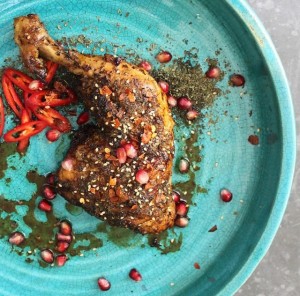
Kalla goes on to describe how food evokes the taste and aroma of nostalgia, reminding you of “home”. Food is sometimes a practical way of connecting you to your past and to your identity. “My recipes were a way to become closer to [my mother], as I felt very far away when I moved out of London and went to France. I had never left home and being away made me miss all of my comforts,” Kalla recalls. Intrigued by the creativity of the kitchen, Kalla explains that cooking “allows me to paint on a plate, so to speak. My mind goes into a totally different world as it closes off to everything else and frees me to just focus on what I wanted. I love creating things and finding a way to put my feelings on a plate.”
As a Palestinian woman striving to be a chef, Kalla had her work cut out. She often found herself to be the only woman in the kitchen, making it harder to be taken seriously by her male peers. The only time she felt like she was offered any real guidance was at her last job: “My chef guided me in the right direction to find my way and begin my own catering company and then later to open my own place. You really need support in this field to keep motivated when times are tough.”
Kalla went to Leiths School of Food and Wine, a prestigious cookery school in London. She has worked in Pengelly's, a Gordon Ramsay restaurant, Daphne's and Papillon, with Michelin-starred chef David Duverger.
After closing her deli at the end of 2014, Kalla took some time off but many of her old customers called and e-mailed her asking for recipes for dishes such as makloubeh, fattet djaj and sayyadiyeh. This inspired Kalla to document the recipes and Palestine on a Plate was conceived.
The application began its life with the help of Kalla's friend Steph Ansari, also of Palestinian heritage, who helped build it. Kalla describes the venture as “a labour of love and it still is as it needs constant nurturing”.
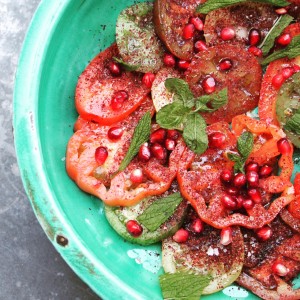
She says she feels a special bond to the application not just because it is her own venture but she believes it has “benefited me because it made me learn more about my background and investigate my history. It has made my mother and I even closer and made me more proud to be, not only an Arab, but specifically a Palestinian.”
Palestine On a Plate has received generally positive reactions. Many have expressed their appreciation of the photos and ideas for the recipes, as well as Kalla's own personal twists to classic dishes. It is not just the ordinary public who have given it the thumbs up but Kalla has received encouraging comments from culinary experts such as Loyd Grossman, Tony Kitous and Ian Pengelley, who described her as “the foremost expert in Palestinian food and is by far the biggest contributor to making Palestinian cooking the popular cuisine that it is today”.
Politically, Kalla has been slandered by some Israelis and she has been asked whether she stuffs the food with explosives, yet this has not deterred her from continuing the path she started. “If it angers people, then maybe I am doing something right… I would have thought that food is something that would unite people, but sometimes it can divide too.”
The kitchen has become one battleground in the Israeli-Palestinian conflict. “If someone wants to try and claim our food, I can't stop them but I can try to set the facts straight,” says Kalla. “Our food is sensational, who would not want to claim it as their own?”
But Kalla has also received very positive reactions in Israel, such as a flattering feature about her career and app which recently appeared in Haaretz.
Palestine on a Plate covers recipes from all over historic Palestine and is not focused on one area in particular. Kalla is concerned that Palestinians are losing their identity. “People don't see our food as Palestinian food anymore, they see it as Israeli or Jewish food,” she says. “We need to own this again and empower our culture with our history and background. Not lose it [to] propaganda and the media.”
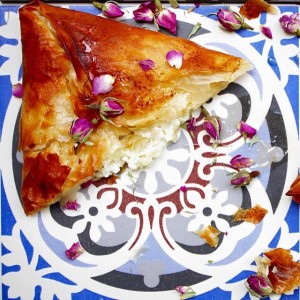
This is the challenge that Kalla has set for herself: to educated people about Palestinian cuisine. “We have enough Italian, French and Chinese restaurants out there, but not many Palestinian restaurants,” she says.
Kalla's passion for food and Palestine are the main force behind her determination. “I believe in this 100%. I love it and people love it too,” she says, pointing to the +12,000 followers Palestine on a Plate has on Instagram. “It makes it all worth it. I was worried that not all markets would understand the title, because let's face it, not many people acknowledge Palestine, but I am not going to hide the most important part of me.”
The most popular dish featured on the application, Kalla says, is m'tabak which her mother only recently taught her to make. It is a flaky pastry filled with halloumi and ricotta baked at a high heat and then drizzled with lemon-sugar syrup, topped off with dried roses and pistachios. ““It is sensational… Incredible and simple,” enthuses Kalla. “My own personal favourite Palestinian dish is makloubeh. The combination of lamb, cinnamon scented rice and fried aubergines with yoghurt is a marriage made in heaven. Always a crowd pleaser.”
Kalla's ambition for the future is to see Palestine on a Plate turn into a cook book, a small deli, and supper clubs throughout the year teaching people how to cook Palestinian food.
“We have so much to offer as a people and as a country,” believes Kalla. “I hope to shed light on that and many other wonders of our homeland.”


